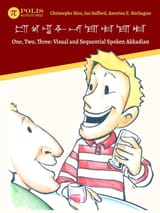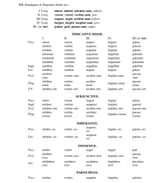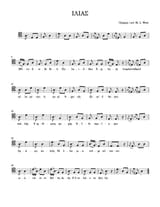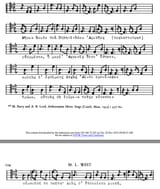>>24575919
When the last sound of my mother's departing wheels had died away, the Headmaster invited me to hand over any money I had in my possession. I produced my three half-crowns, which were duly entered in a book, and I was told that from time to time there would be a 'shop' at the school with all sorts of things which one would like to have, and that I could choose what I liked up to the limit of the seven and sixpence. Then we quitted the Headmaster's parlour and the comfortable private side of the house, and entered the more bleak apartments reserved for the instruction and accommodation of the pupils. I was taken into a Form Room and told to sit at a desk. All the other boys were out of doors, and I was alone with the Form Master. He produced a thin greeny-brown, covered book filled with words in different types of print.
'You have never done any Latin before, have you?' he said.
'No, sir.'
'This is a Latin grammar.' He opened it at a well-thumbed page. 'You must learn this,' he said, pointing to a number of words in a frame of lines. 'I will come back in half an hour and see what you know.'
Behold me then on a gloomy evening, with an aching heart, seated in front of the First Declension.
<pictured: declension table of mensa in sg.>
What on earth did it mean? Where was the sense in it? It seemed absolute rigmarole to me. However, there was one thing I could always do: I could learn by heart. And I thereupon proceeded, as far as my private sorrows would allow, to memorise the acrostic-looking task which had been set me.
In due course the Master returned.
'Have you learnt it?' he asked.
'I think I can say it, sir,' I replied; and I gabbled it off.
He seemed so satisfied with this that I was emboldened to ask a question.
'What does it mean, sir?'
'It means what it says. Mensa, a table. Mensa is a noun of the First Declension. There are five declensions. You have learnt the singular of the First Declension.'
'But,' I repeated, 'what does it mean?'
'Mensa means a table,' he answered.
'Then why does mensa also mean O table,' I enquired, 'and what does O table mean?'
'Mensa, O table, is the vocative case,' he replied.
'But why O table?' I persisted in genuine curiosity.
'O table,—you would use that in addressing a table, in invoking a table.' And then seeing he was not carrying me with him, 'You would use it in speaking to a table.'
'But I never do,' I blurted out in honest amazement.
'If you are impertinent, you will be punished, and punished, let me tell you, very severely,' was his conclusive rejoinder.
Such was my first introduction to the classics from which, I have been told, many of our cleverest men have derived so much solace and profit.
https://www.fadedpage.com/showbook.php?pid=20160543


































